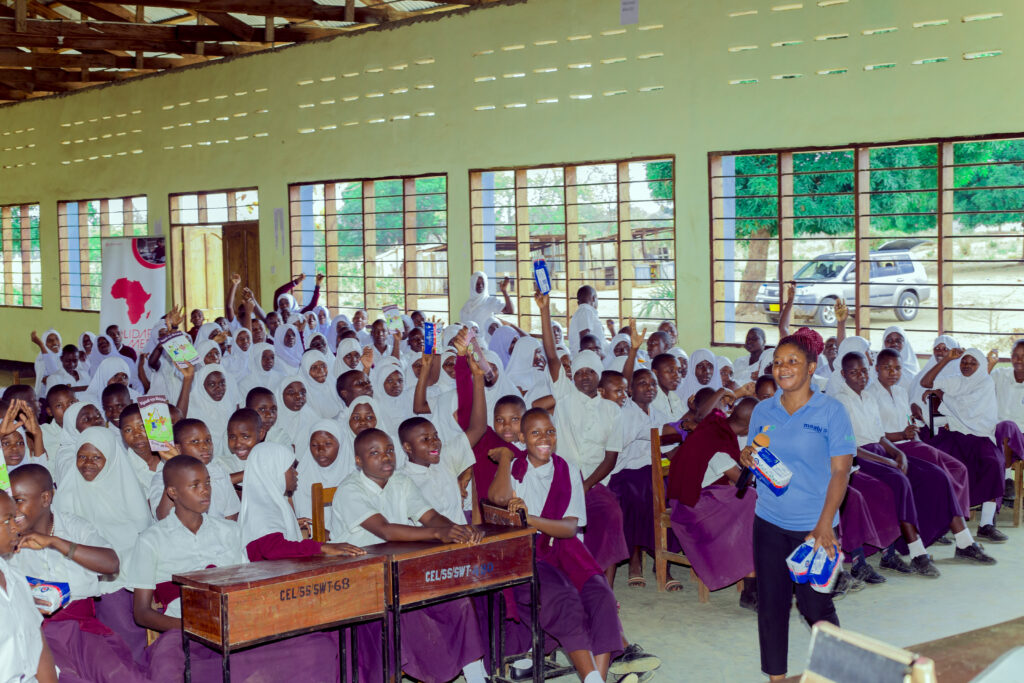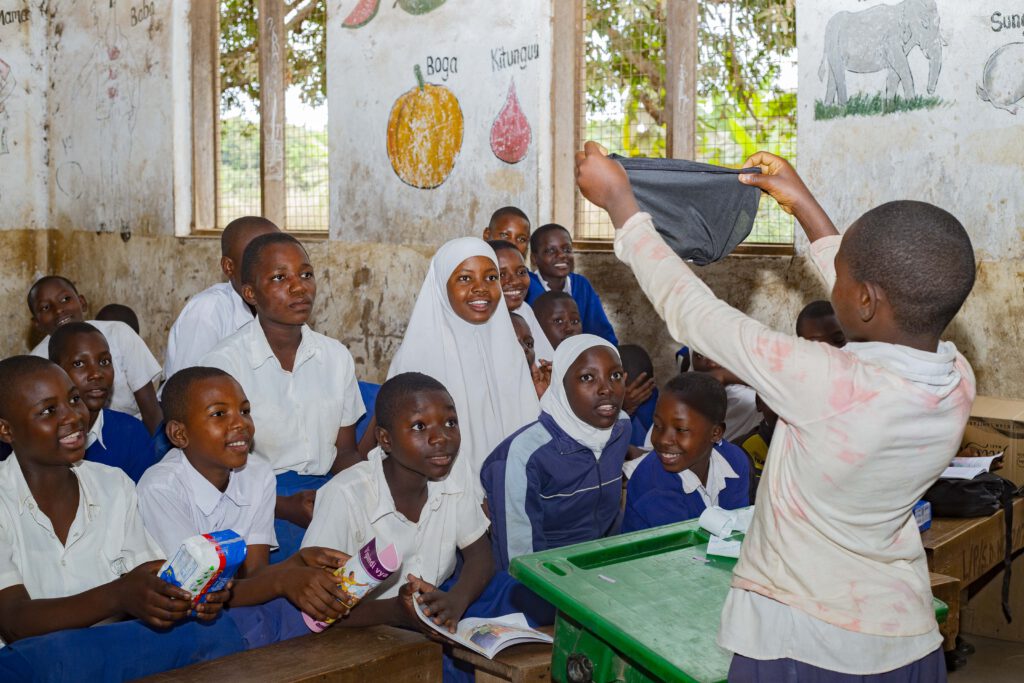Tanzania
Kilombero
Sharing knowledge and breaking taboos
Self-confident and self-determined handling of menstruation for young girls in the rural Tanzania
Background
In Tanzania, particularly in rural areas, menstruation and menstrual hygiene management (MHM) pose considerable challenges for young girls. In large parts of society, menstruation is seen as something dirty and is treated as a taboo subject. As a result, girls do not receive adequate support from home, school or their social environment in learning about adequate practices. The consequences are dramatic for the young women: girls often have very limited knowledge about menstruation, which would be the prerequisite for dealing with it in a healthy, hygienic and dignified way. In addition, there is hardly any access to hygiene products – only 2% of schoolgirls in all of Tanzania use tampons or pads. The alternatives, such as scraps of cloth or raw cotton, are often unhygienic. Finally, the fact that menstruation is associated with a sense of shame and that schools lack infrastructure to deal with it discreetly and hygienically leads to girls staying away from school. The monthly absences have a significant detrimental impact on the educational potential of the young girls.
To address these problems, an integrated approach is needed that not only deals with the girls’ own knowledge and access to hygiene products, but also addresses the societal framework. Such an approach allows for a more open and dignified approach to menstruation – a basic prerequisite for young women’s self-determination and reproductive health. With this goal in mind, the WaterFoundation, in cooperation with the Tanzanian organisation MSABI, has developed a concept that accompanies girls and their social environment on this path.
Project location
The project is implemented in the districts of Malinyi, Kilombero and Ulanga (Kilombero Valley) in the Morogoro region. The focus is on the Kilombero district.
Project beneficiaries
With the girls participating in the workshops in the schools, the project will reach about 1,000 beneficiaries directly. Adding the community members, the teachers and the trained young women entrepreneurs, a total of about 2,055 people benefit from the project.
Project goal
The project enables young women to deal with their menstruation in a hygienic, self-confident and self-determined way. It not only addresses the students themselves in order to impart the necessary knowledge, but also integrates actors from their social environment to break the taboo of the topic. In addition, sustainable solutions for access to low-cost hygiene products are developed and provided.
Project activities
To achieve this, the project envisages the following activities:
- Conduct MHM workshops in 5 schools to provide students with the necessary knowledge and awareness on menstruation and hygiene products.
- Establish and train WASH (Water, Sanitation, Hygiene) clubs in schools to serve as a forum for peer exchange and mutual empowerment on MHM issues.
- Train and equip teachers with materials to enable them to sustainably continue delivering the information to students even after the end of the project. For this purpose, a long-term plan will be developed with the teachers and the school management.
- Organize events and group discussions in the communities of each of the 5 schools for parents, young people and village elders to provide basic knowledge and to remove the taboo about the handling of menstruation
- Select and train five young women from the communities in the production of recyclable menstrual pads, which can then be purchased at low cost.
Local partner Organisation
MSABI is an established organisation in implementing water access, sanitation and hygiene projects in rural Tanzania and has been working to improve the health and well-being of the rural population since 2009. The organisation is registered as a non-governmental organisation and has already implemented numerous projects in the field of MHM, developing training materials and long-term concepts. All measures are tailored to local conditions and are designed and implemented in close exchange with partners and project beneficiaries.
Duration
May – October 2023
Costs
13.000 Euro
Sponsor
Erzbischöfliches Ordinariat München
Contact
Luca Wesel
WaterFoundation
l.wesel@wasserstiftung.de

